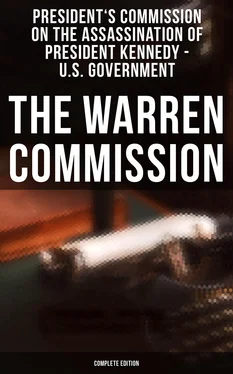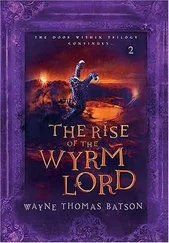Mr. Rankin. That is the response that you received from the White House?
Mrs. Oswald. From the telegram that I sent, when I sent a telegram to you and Chief Justice Warren—I sent him a telegram. I have it right here, sir. You don't know about the telegram.
Here is a copy of the telegram.
"President Lyndon B. Johnson. I have sent night letters to Chief Justice Earl Warren and J. Lee Rankin imploring both in the name of justice and our American way of life to let my son Lee Harvey Oswald be represented by counsel so that all witnesses including my son's widow will be cross-examined. Respectfully yours, Mrs. Marguerite Oswald."
And this is the response to that. And I don't think that is a gracious response at all. If I want to write the President or send him a telegram, I think I have as much right as anyone else to do so.
Mr. Rankin. Did you comment on the fact of this response from the White House when you received it to anybody?
Mrs. Oswald. Yes, sir. There was a reporter from Time Magazine that I commented to, because I was indignant, as I said. And he said, "Well, if you or your next door neighbor or anybody walking in the street wanted to write the President, that is our American way of life." And I agreed with him.
Mr. Rankin. Now, you are quoted in this article as saying "Why, I have got as much right as any citizen to write the President of the United States, to petition him, and let me tell you this, Mr. Johnson should also remember that I am not just anyone, and that he is only President of the United States by the grace of my son's action." Is that a correct quote?
Mrs. Oswald. No, that is not a correct quote. And that is why I was indignant yesterday when I read that. And there is more discrepancies.
I did tell him about receiving the letter, and I had just received it—that I was indignant they should write and as much intimate that I should not write the President.
I made a special appeal to the President.
Mr. Rankin. Do you recall what you did say? Did you say anything like this?
Mrs. Oswald. No, sir. There was nothing said to this reporter about President Johnson—because I believe my son is innocent. So if I say that, then I would be saying that my son is guilty. And that is why the President is now the President. No, sir. I did not say that.
Mr. Rankin. What reporter for Time Magazine was that that you were talking to?
Mrs. Oswald. I can find out the name for you, or I can think about it. Let's see. I think the name is Sullivan. I did not want to think—but I think it is Sullivan. Do you have that information?
Mr. Rankin. No.
Mrs. Oswald. Well, I will get it for you, or maybe it will come to me.
Mr. Rankin. All right.
Mrs. Oswald. But I do know, because I was paid for the picture—one of the pictures in that magazine.
Mr. Rankin. We would appreciate your telling us as accurately as you can.
Mrs. Oswald. I want to give you any and every information I can.
The Chairman. Did the man who interviewed you in this matter also pay for the picture—the same man?
Mrs. Oswald. Yes sir—for the Time Magazine.
Mr. Rankin. Did he pay you for any part of the story?
Mrs. Oswald. No sir. No, I am wrong there, he did. He paid me for part of the story. That is not the story.
This isn't the story that was supposed to have come out. It was a much nicer and softer story. But we have found out that when we give these press notices, that they don't come out the way you give them. And they explain—like if I was to tell Mr. Sullivan, "I am disappointed in your story"—"Well, Mrs. Oswald, our editor edits to make room," and so on. That is what you get. I was disappointed in the story, because the story was that I felt so sorry for Marina, to think that she had to go through the rest of her life thinking in her mind that her husband was the killer of President Kennedy, and that she would have to tell her children that she had gone down in history, that their father was the killer of President Kennedy. And I went on with a long story. I said—they said "Marina had stringy hair, and she didn't have this or that." Let me tell you, I would rather have Marina with the stringy hair and less clothes, but thinking that her husband was innocent, like she thought the 3 days I was there—rather than the picture now, where she smokes, she no longer nurses her baby, she left her baby in Texas to come to the Warren Commission, which is not the Marina I know.
"Marina, Mama, no, no, she never left her children." And well groomed. But she thinks now her husband shot President Kennedy. What an awful thing. I would much rather have no money and stringy hair and be the girl I was before, and believe my husband was innocent.
The Chairman. How much did Life pay you for your story?
Mrs. Oswald. Is that pertinent?
The Chairman. Or Time, rather.
Mrs. Oswald. Is that pertinent to the Commission, or is that my personal?
Mr. Doyle. I don't think the Chief Justice—he has simply asked you a question. If you wish to answer the question that is fine. If you don't, if you tell the Chief Justice you don't wish to answer the question——
Mrs. Oswald. Well, it doesn't have any bearing. I think the amount I got would be immaterial to the Commission. I don't know.
The Chairman. Well. I think it might be material under some circumstances. But if she doesn't wish to tell us, that is all right.
Mrs. Oswald. It is not—just like the pictures. I want you to have the pictures. And you didn't seem to think they were important enough.
I am asking if this is important to the Commission, because that is my personal life. It is no crime to sell the pictures. I have no job or income. If I want to sell a picture to a magazine or a newspaper, and protect myself financially, I am going to continue to do that.
Mr. Doyle. The Commission has stated to you that it would be interested in knowing, that it feels it might be of some value to them. But if you do not wish to say anything about it, they would not press you.
So again, it would be completely up to you.
Mrs. Oswald. I think that would probably, like these pictures, be my personal——
Mr. Rankin. Did you learn about the attempt of your son to shoot General Walker?
Mrs. Oswald. I am delighted you asked me that question. I have these notes here, and didn't go through that.
The first time I knew about General Walker was through the paper.
Now, I became indignant. I do not remember the quotes. But why I became indignant, was that I had Lee's handwriting in Russian. But no one came to me to find out about this note. That is the part, gentlemen, that is so peculiar about this whole thing.
I understand through reporters that the note was shown to Mrs. Ruth Paine, and wanted to know if the handwriting was Lee's handwriting. But no one has come to find out if I had any handwriting of Lee in Russian, which I have.
Mr. Rankin. Did you think this was in Russian?
Mrs. Oswald. Yes. I am under the impression that the note was in Russian. It stated in the paper.
Mr. Rankin. When did you learn about the Walker incident?
Mrs. Oswald. Through the newspaper. And it has been changed, the story, now. If I can remember. Now, I will get this for you. I have a friend that has one of the most complete scrapbooks in the United States, that helps in this investigation. And I can get all these articles, sir. And I will help in every way possible.
If I remember correctly, it was stated that Marina found this note in the room that says "I may be arrested, and if so get in touch with the Russian consul" and told her where to go to the jailhouse. I wish I knew the exact quote. So we are getting back to an agent now.
From what I remember in the beginning, he did not say in the note that he was going to kill General Walker—that he would be involved in something that might cause him to be arrested and so on. I remember this. That was in the very beginning, sir. It came out in Fort Worth, Tex.
Читать дальше












